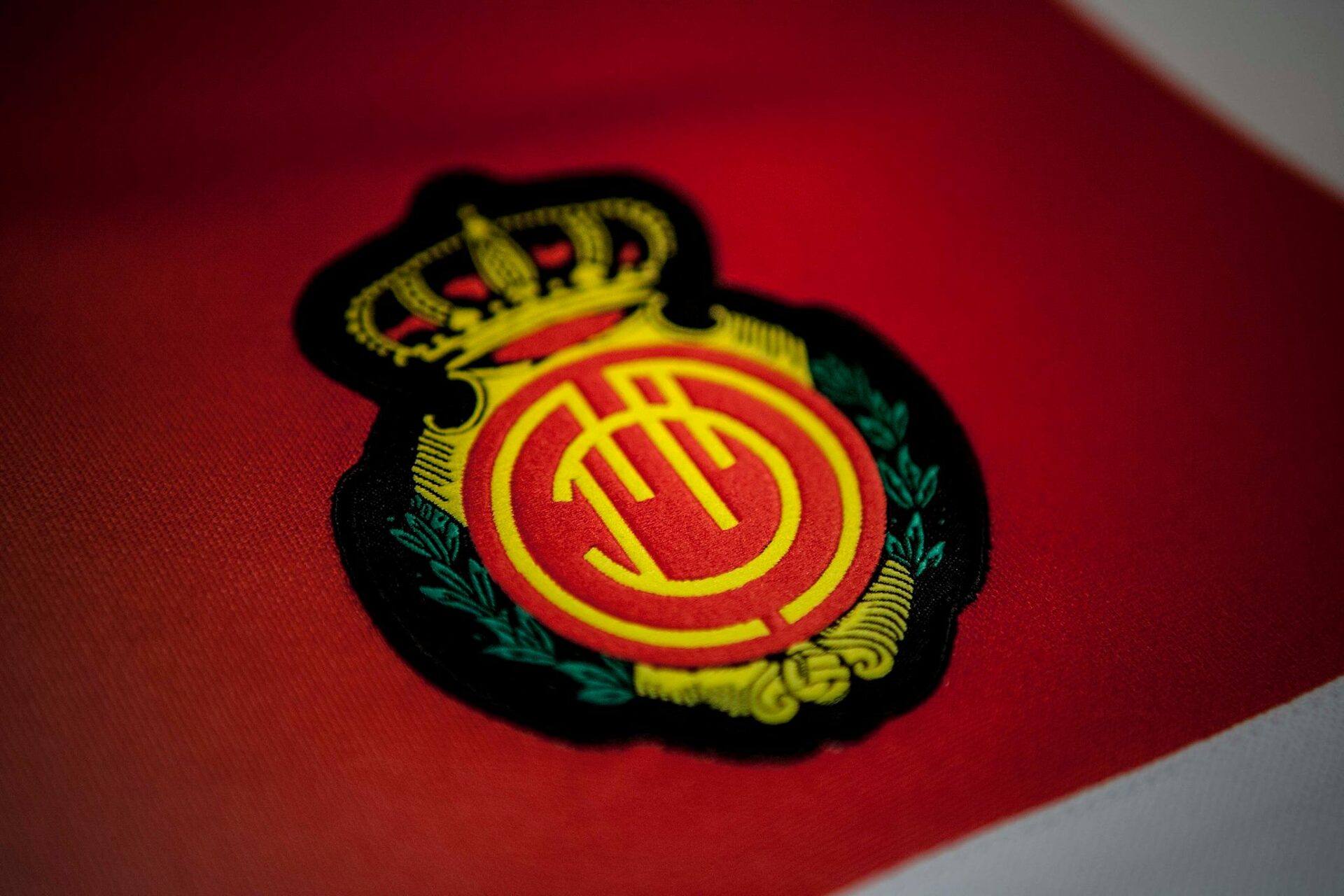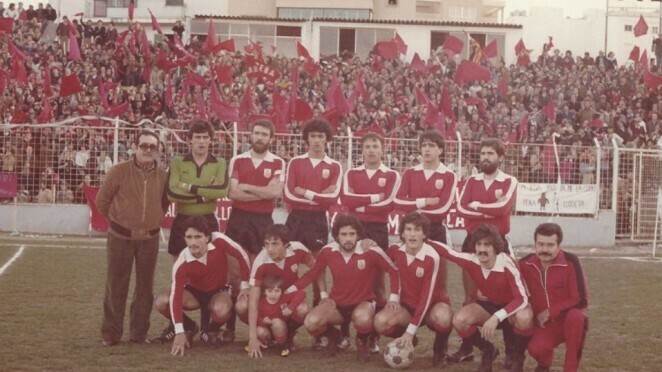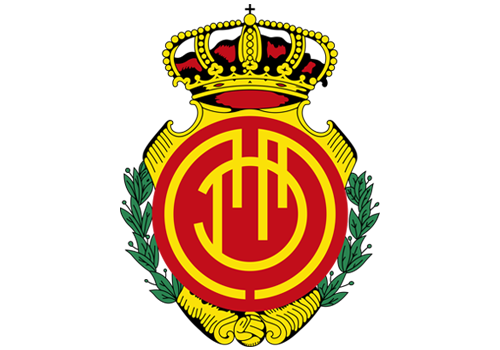History
History of the Club
THE BEGINNING OF RCD MALLORCA
Recognising the 5th of March 1916 as its official date of foundation, what would later become RCD Mallorca was registered at the Spanish Football Federation following the inception of Alfonso XIII FBC six days prior in Palma - first named Club Deportivo Mallorca and later Real Club Deportivo Mallorca.
Weeks after its establishment the club wasted little time forming the directors of Alfonso XIII FBC, headed by engineer Adolfo Vázquez Humasqué and eight other football fans. Inaugurating the Buenos Aires field, the first home of Los Bermellones, with a competitive fixture against FC Barcelona just 20 days after registering further fast-tracked development. Despite the fixture ending in a disappointing 8-0 defeat, it was not long before the King Alfonso XIII himself requested the royal adoption of ‘Real’ in the team's title – a designation that would last until 1931 following the switch to Club Deportivo Mallorca.
April would then mark yet another significant month in club history: the 14th yielding an appointment of the club’s first president, Señor Antonio Moner, and later the principal fixture held on the Peninsula – a 4-0 defeat to Universitari.
A year on from initiation, the Catalan Federation granted Real Sociedad Alfonso XIII admission into the second league championship as an unofficial champion of the Balearic Islands. Booking a place in the final against Palafrugell, Los Bermellones went on to record their first title with a resounding 3-1 victory in Barcelona. Until the 1930’s, the board of directors managed to organise fixtures against peninsular clubs such as RCD Espanyol and Real Murcia while also hosting rare exhibitions against foreign sides including: Ajax in 1923, Uruguay’s national selection two years later, Chilean outfit Colo-Colo in 1927 and one of the Czech Republic’s oldest teams, Prague Meteor, in 1930.
As matches took place with relative regularity, the first 16 years of Rojilla existence heralded 240 victories, 76 draws and 105 defeats across 421 games. During this period, seven presidents took charge of the club following Vázquez Humasqué, shared between: Don Antonio Parietti, the aforementioned Moner, José Ramis de Ayreflor and Lluís Sitjar, Sebastián Sancho and Manuel Manuel Longa.
Although major fixtures and competitions across Spain were soon interrupted by the outbreak of the Civil War in 1936, the squad enjoyed a highly successful spell by winning every possible championship they entered into as football on the island remained resistant to the deferral experienced throughout the country. When the war finally ended, matches with teams from the Peninsula were quick to resume and with it brought about the inauguration of the Second Division based on five groups with eight teams.
It was during a period in the Second Division that, on September 22, 1945, the time had come to wave goodbye to Buenos Aires Field and up sticks to Es Fortí, a 16,000-maximum capacity stadium which would be called home for over half a century and undergo several expansions. A line-up featuring forward Sebastián Pocoví, defender Saturnino Grech and goalkeeper Antoni Ramallets beat Jerez 3-0 on the opening game of the new campaign the following day, with Carlos Sanz scoring Es Fortí’s first goal in front of packed-out terraces. The title Es Fortí was short-lived however, with the board later changing the name of the stadium to Lluís Sitjar 10 years later.

THE RISE TO THE FIRST DIVISION
Despite efforts to maintain RCD Mallorca’s place in the second division, the 50’s marked a yo-yo period of promotion and relegation between lower leagues. A year on from the erection of Lluís Sitjar, the foundations for the future were laid by the appointment of Jaime Rosselló Pascual as president. The island native made the bold decision of dismissing all staff except for Joan Forteza - the first-ever goal scorer - and in doing so named Argentine coach Juan Carlos Lorenzo as manager. The fresh approach to matters twinned with Lorenzo’s innovative defensive systems heralded consecutive promotions from the third division to the first on April 17, 1960 – Los Bermellones first time in the foremost league, a short 44 years after foundation.
By gaining promotion, RCD Mallorca earned its status as a professional team and thus immortalised players such as Zamora, Vendrell, Febrer, Arqué, Diego, Cobo, Magín, Juanele, Bolao, Guillamón, Forteza, Currucale, Boixet, Ladaria, Garcés, Gassó, Martínez, Lorenzo, Villamide, Sureda, Oviedo, Mir, Rodríguez II, Czoka and Laguardia in history. The 16-team format of the top tier featured a relegation play-off system, where the bottom two teams were demoted while 13th-and-14th placed sides had to face two potential newcomers from the division below in order to stay in the competition. Bolstered by signings that included the likes of Flotats, Irusquieta, Mitro Davoine and Haro, a respectable ninth-place finish ahead of Espanyol, Racing, Oviedo or Seville was achieved. Despite qualifying for another season amongst the best sides Spain had to offer, manager Lorenzo left the club and was swiftly replaced by former Real Valladolid goalkeeper José Luis Saso.
Over the coming years the team’s financial position worsened, further compounded by the departures of both Pascual and backroom staff. Don Lorenzo Munar managed to intervene and keep the side afloat with an 11th-placed finish, but with an ever-changing situation on and off the pitch, RCD Mallorca were demoted after three years in the First Division. However, wasting little time in regaining best form, Los Bermellones achieved promotion in the 1964/65 campaign, an ascent made all the more impressive by changes in league formatting which meant only the champions and a second-placed play-off could advance to the top tier.
Never short of drama, RCD Mallorca were once again relegated the following season after a turbulent year. The 1966-67 campaign in the Second Division was further compounded by the departure of beloved striker Juan Forteza al Lleida after 11 seasons while additional exits eventually resulted in 35 points and a fifth-place finish.
Tasked with the aim of repeating his promotional feats, Lorenzo’s returned to the club following the dismissal of Vicente Dauder ahead of the 1967-68 season. Despite much anticipation, the Argentine was unable to replicate his previous achievements and was dismissed the same season on the 4th of April, making way for Jaume Turró who guided the Mallorca to a fourth-place finish in Group II of the Second Division.
The following 1968-69 yielded greater success as RCD Mallorca reinstated their place in Division One despite several managerial changes. Vicenç Sasot started in the hot seat but was replaced by a combination of Argentina’s Juan Carlos Forneris and Uruguay’s Sergio Rodriguez. Inheriting a squad that featured former European champion and Brazilian international Canario, the tandem guided us to a well-earned promotion. Joy was to be short lived, as the subsequent year not only featured relegation but compounding difficulties off the pitch - a first point earned at the Santiago Bernabéu on the 5th of April 1970 was one of the few highlights of a forgettable season.

THE TRANSITION FROM A DIFFICULT TO BRILLIANT PERIOD
The 70’s were defined as a particularly straining part of RCD Mallorca’s history. With a plan in place to fight once again for promotion ahead of the 1971-72 season, mounting debts prohibited the construction of a squad the returning Forneris desired. Regular managerial changes would unfortunately become a theme throughout the club’s financial woes as the Argentine was replaced by Brazilian coach Otto Bumbel a short three months later, then succeeded by Spain’s José Luís Saso who would see out the remaining few fixtures.
Amid spiralling debts, administrative issues and poor performances, Mallorca eventually descended to the Third Division in 1975. Spanish manager Luis Costa would finally end their two-year stay with a play-off promotion, despite missing out on the opportunity of automatically ascending to Second Division A having led the title race throughout the season.
The 1977-78 season is marked as a dark chapter in club history and a regretful one for Spanish football as in mid-November Mallorca’s financial difficulties had become unmanageable while problems were further compounded by relegation to the Third Division. Despite the bleakness of an unrelenting period, Miguel Contestí’s arrival as president and the shrewd managerial appointments that followed would be of some saving grace. In the following 1978-79 campaign Spanish manager Antonio Oviedo would first guide Los Bermellones to the Second Division B before continuing success with a promotion to the Second Division A.
If ever there was a time for footballing idols in Mallorca, Paco Bonet’s year between 1980-81 was certainly it - a cameo that would later result in a move to Real Madrid, call-ups to the national side and an eventual return to the club. The future of the club was by no means secure, but there was a light at the end of the tunnel as performances steadily improved and finances began to stabilise. The following campaign however would result in Oviedo’s dismissal and the introduction of former Barcelona and Real Madrid player Lucien Müller. The Frenchman demonstrated his capabilities with promotion to the First Division in the 1982-83 season - a campaign remembered for Paco Higuera’s emergence and a spectacular end-to-end goal by goalkeeper Ramon Reus against Cordoba.
Promotion to the First Division did not come without its drama however as ascension depended on other results on the final day of the season. Defeat to Real Madrid in the capital set up a nervy finish for Mallorca, although Rayo Vallecano’s victory over RC Deportivo de La Coruna guaranteed Müller’s side the all-important third-placed finish and prompted hysterical celebrations at Santiago Bernabéu.
Mallorca’s return to the First Division, twinned with the arrival of celebrated Irish forward Gerry Armstrong, was met with plenty of anticipation ahead of the 1983-84 season - so much so, a record 18,000 season tickets sold. The campaign would fail to live to expectations as relegation ensued, but is best remembered for the falling wall at Lluís Sitjar against Real Valladolid on the 18th of March, 1984.
THE TRANSITION FROM A DIFFICULT TO BRILLIANT PERIOD (2/2)
The pursuit of a return to the First Division in the 1984/85 would be headed by Spaniard Manolo Villanova, who not only benefitted from his experience as RCD Mallorca’s goalkeeper across the 1966-67 and 1967-68 campaigns, but inherited a talented squad boasting the likes of Manolo Preciado, Pep Bonet, Damià Amer, Antonio Orejuela, Paco Higuera and Gerry Armstrong. Despite such strength in depth and aptitude, promotion was not to be.
The following 1985-86 season would be remembered for a dramatic manner in which RCD Mallorca reclaimed their spot in the First Division. The final-day victory against Logroñes in La Guanas on the 18th of May, 1986 went down in local folklore as, in front of thousands of fans making the trip to northern Spain, Luis Garcia caused pandemonium in the terraces by securing promotion with five minutes remaining. While Spanish manager Llorenç Serra Ferrer is credited with masterminding the success, Enrique ‘Tronquito’ Magdaleno’s ice-cold execution in front of goal assured his place in the pantheon of deadly forwards to have represented the club.
While fans’ mouths watered at the prospect of seeing Ferrer’s side pit themselves against household names such as Real Madrid’s Hugo Sanchez, Andoni Zubizarreta of FC Barcelona and Espanyol’s Ernesto Valverde ahead of the 1986-87 season, few would have anticipated the emergence of their very own star in 20-year-old Miquel Àngel Nadal. The midfielder would not only become one of the finest and most important players to have worn the shirt, but later transfer to La Blaugrana and a regularly feature for the national side. Quickly becoming one of the first names on the team sheet, Nadal stood out alongside club legend Ezaki Badou, the Moroccan goalkeeper of eye-catching performances in the 1986 World Cup in Mexico, while reinforcements included Jose Antonio Martínez Martín ‘Trobiani’, Eduardo Belza and the return of Bonet.
RCD Mallorca would go onto achieve their highest league finish to date by securing sixth position but unfortunately miss out on the UEFA Cup’s European football. The 1986-87 season was a notable one for history buffs as in addition to Los Bermellones’ First Division performance, Magdaleno broke the goalscoring record while Lluís Sitjar registered its largest attendance as 29,000 fans witnessed a 1-0 victory over Real Madrid, courtesy of a strike by ‘Tronquito’ himself.
Optimism for building on prior achievements was replaced by disappointment as poor performances would not only cost Ferrer his job and mark the return of Muller, but RCD Mallorca were sucked into a relegation play-off against Real Oviedo. Rafael García Cortés gave fans a slither of hope in a 2-1 away defeat in first leg, but the return fixture would end in a goalless draw. One year after securing a best-ever finish, RCD Mallorca returned to the Second Division.
The setback would not last long, and despite notable departures including Garcia’s transfer to Atletico Madrid, Higuera’s switch to Real Zaragoza in addition to Magdaleno, Bano and Sebastián Chano leaving for Real Burgos, reinforcements were not in short supply and included: Miguel Molondro, Eduard Abadal, Alberto Albístegí, Guillermo, Javier Sánchez-Clemente, Josep Sala, Antonio Rivas, Angel Pedraza, Endika, Zoran Stojadinovic and Zoran Vúlic. While RCD Mallorca stayed true to the quality of their academy system with Gabi Vidal’s notable emergence among others, the 1988-89 season would mark the first-ever inclusion of three foreign players in the official squad. Serbian Ivica Brzić started the campaign as manager but soon left, leaving the door open for the returning Serra Ferrer to achieve promotion via a play-off victory against Espanyol. In typical dramatic fashion, RCD Mallorca would overturn the 1-0 defeat in Sarrià on the 28th of June 1989 by taking the return fixture four days later to extra-time courtesy of Nadal’s equaliser. Vidal struck early in the 93rd minute to tee up a tense final few minutes, but Los Bermellones’ passage to the First Division was secure come the final whistle amid the island’s celebrations.
